Camping in the great outdoors of New Zealand is an unforgettable experience.
Easter is often the last long weekend Kiwi families get before it’s time to pack the tents away for the winter. Both the Crafty Weka fam and our friends at Good Change love the great outdoors, and we thought you might appreciate some tips to make your next camping trip as eco-friendly as possible. Embracing sustainability on your adventure allows you to reduce your environmental impact, which means that future generations will be able to enjoy nature the way that we do today.
So… How to be more Sustainable while Camping?
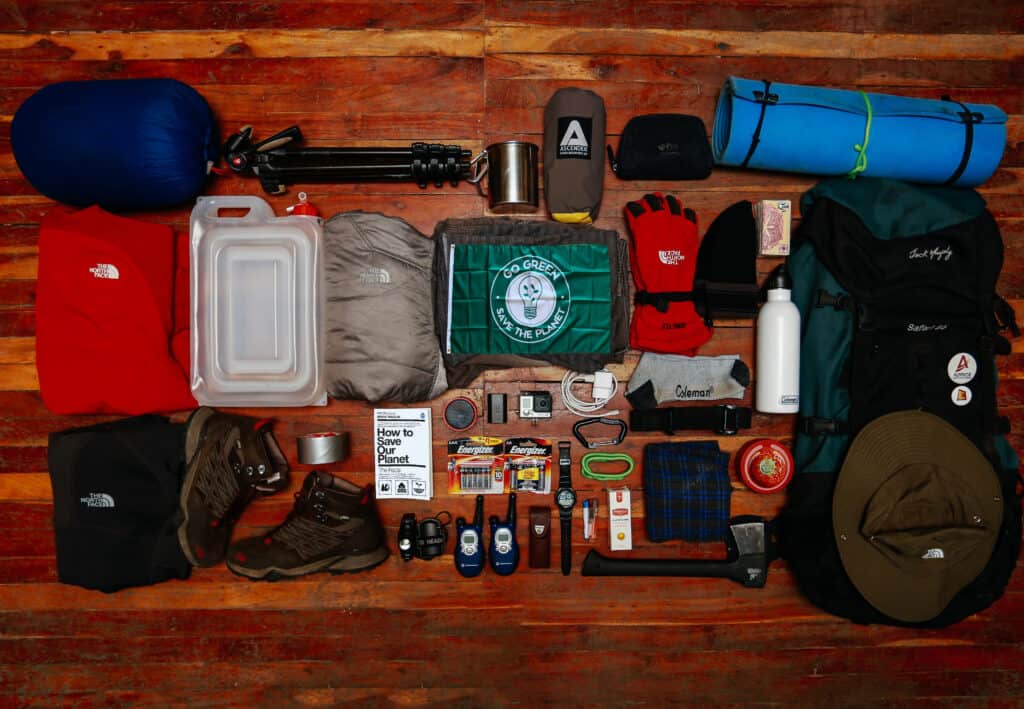
1. Choose eco-friendly gear
Invest in durable, eco-friendly camping gear made from natural, recycled, or upcycled materials. Look for sustainably-sourced products, such as tents made from recycled materials and sleeping bags filled with natural fibers, like down or wool. By choosing gear that lasts longer and has a smaller ecological footprint, you’re contributing to a cleaner, greener environment.
You can also buy great quality gear second hand or look at rental options from outdoors stores near you. This is a great way of making camping more affordable and reducing your impact! Shops like Social Nature Movement specialise in sourcing top quality gear that’s available for rental, check them out!
2. Pack sustainable snacks
When packing your camping snacks (this goes for tramping, or hitting the beach too!), opt for locally-produced options in compostable packaging. Supporting local businesses with an emphasis on sustainable practices means you’re reducing your environmental footprint both by cutting down shipping distances, but also by ensuring these businesses can keep operating and laying the groundwork for a greener approach to business practices within the industry as a whole.
The Crafty Weka Bar is handmade in Otautahi, NZ, using all wholefood ingredients that are packed full of energy and all-round deliciousness. The cello wrapper may look like plastic but is actually a plant-based material that you can bury in the ground along with the box, meaning your snack will have left no trace within a mere 8 weeks!
You can also reduce waste by bringing your own food. Ask yourself – can I make this myself?? Recently we came across a camper who brings flour, sugar and salt from home and makes his own tortillas at camp to reduce his plastic waste – what a legend!

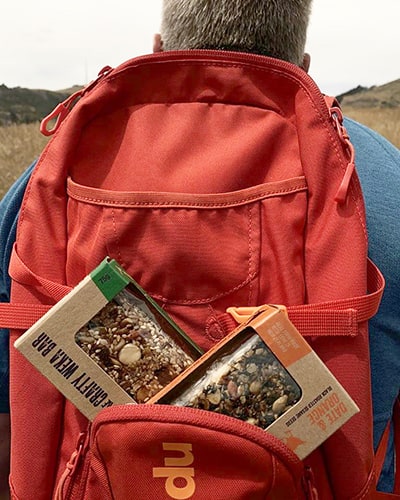
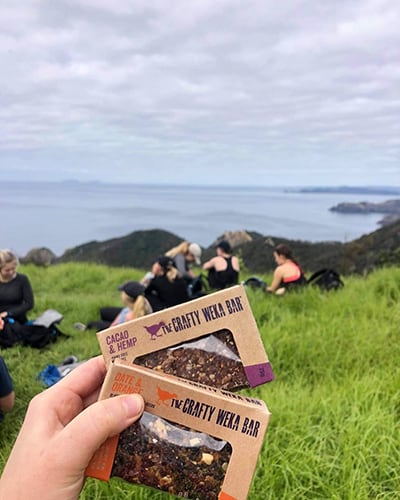
3. Use solar power
Harness the power of the sun to meet your camping energy needs. Solar-power is getting cheaper and more efficient at an astonishing rate! Looking into solar-powered chargers & lanterns can help reduce reliance on disposable batteries and fossil fuels.
We highly recommend the gear at Goal Zero, their usb-rechargeable lanterns and portable solar panels are a brilliant combo for summer camping! Additionally, check out their portable solar-powered generators, which eliminates noise pollution and nasty exhaust fumes, making your camping experience more peaceful and enjoyable.

4. Use sustainable cleaning products
This is a big one for our friends at Good Change! Choose biodegradable, environmentally-friendly cleaning products for washing dishes, your clothes, and yourself. Our eco-friendly options include our reusable bamboo towels and cleaning refill tablets which are fantastic for cleaning up while camping! These cut down on the waste that you have to carry out, with the added bonus of being biodegradable if they accidentally get left behind. Many traditional cleaning products leave behind microplastics or contain chemicals that can harm wildlife and pollute water sources – not what anyone wants!
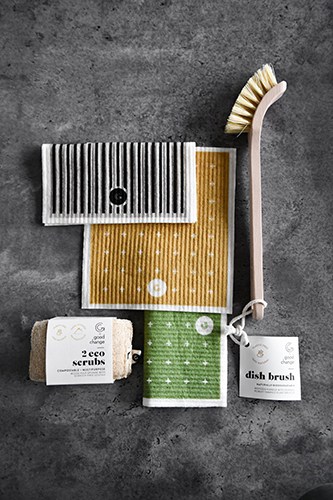
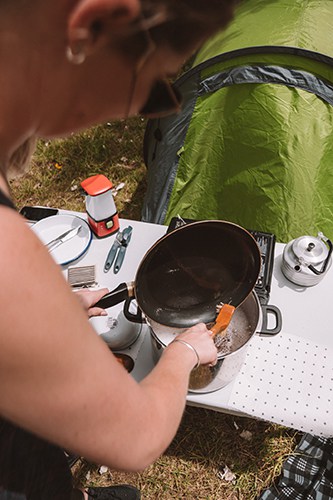
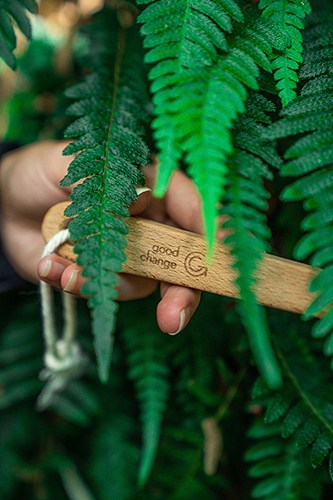
5. Leave no trace
Practice the “Leave No Trace” principles by cleaning up all rubbish, extinguishing campfires, and avoiding damage to plants and trees. Do a tidy Weka sweep (you know how good they are at spotting snacks!) with your whole camping crew before you leave the site for the last time. Dispose of waste properly, including packing out all trash and recycling materials. Leave your campsite as pristine as you found it (or better!), ensuring that future campers can enjoy the same unspoiled beauty.
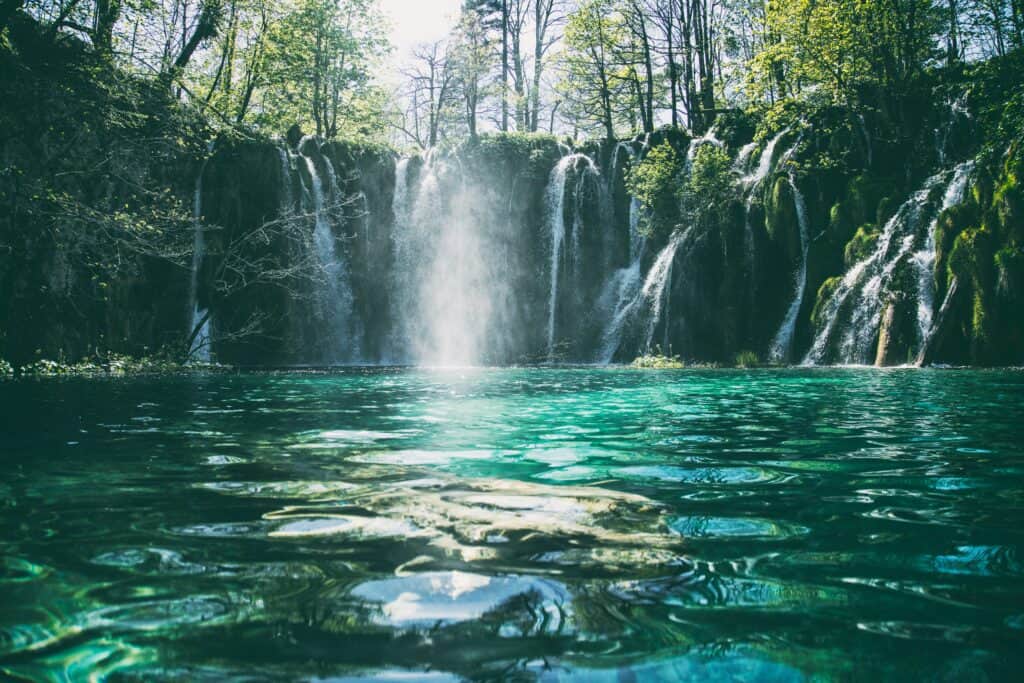
6. Conserve water
Here in Tauranga it doesn’t feel like it after all the rain we’ve had, but water is still a precious resource, and conserving it is crucial. Collect rainwater for non-drinking purposes, such as cleaning dishes and washing clothes, and use a portable shower with a low-flow nozzle to minimize water usage – this Sea to Summit pocket shower features an easy to adjust nozzle and packs away compactly. Also great to remember to use biodegradable soap when washing near natural water sources!
7. Respect the land & the animals that live there
Observe wildlife from a safe distance and avoid feeding them, as human food can harm their health and alter their natural behaviours. Store your food and rubbish in rodent-resistant containers or hang it from a tree to prevent attracting wildlife to your campsite. You can still admire the beauty of New Zealand’s flora and fauna while respecting their habitats.
Respecting the land also means adhering to the local regulations. We all love sitting around a campfire and roasting some marshmallows, but please check that there are no fire bans in place in the area. If fires are allowed only build it in an established fire pit (or build your own if there isn’t one!) and keep it a manageable size! When you’re done, douse your fire with water and make sure you stay around until it’s completely out.
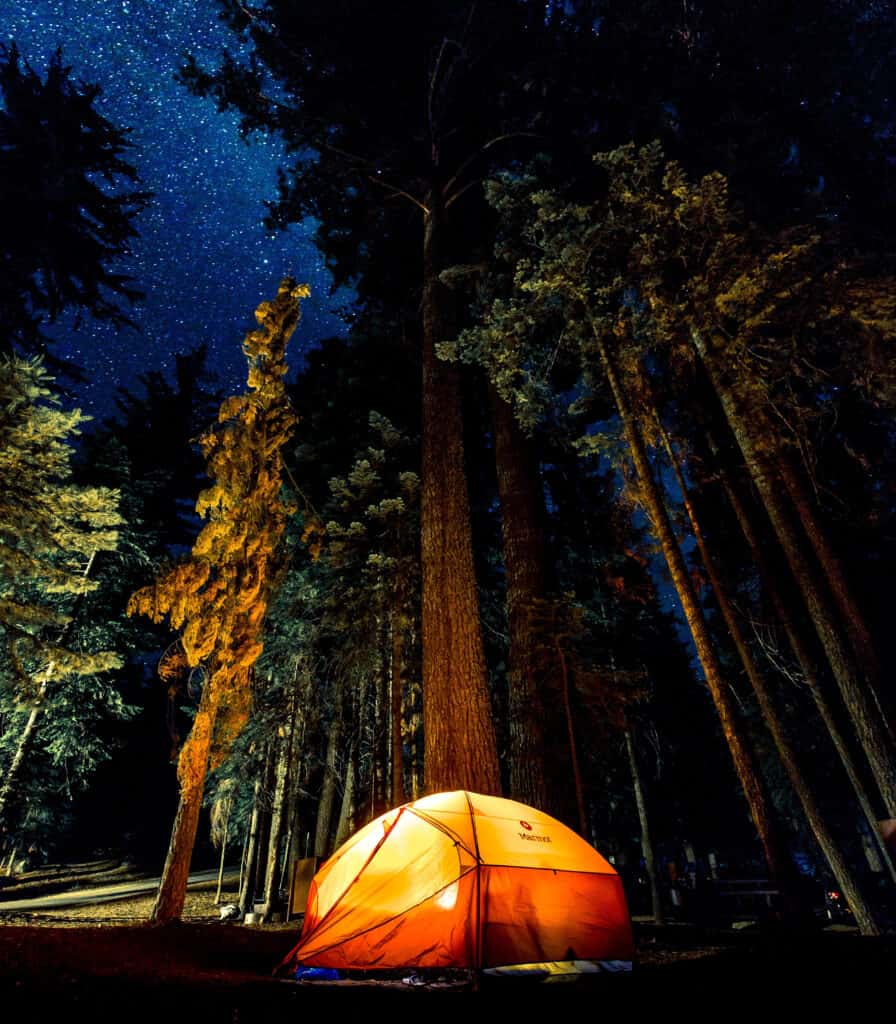
Sustainable camping in New Zealand’s stunning landscapes is a rewarding and responsible way to connect with nature. By implementing these eco-friendly hacks, you’ll be ensuring the preservation of our planet for generations to come. Happy camping!






